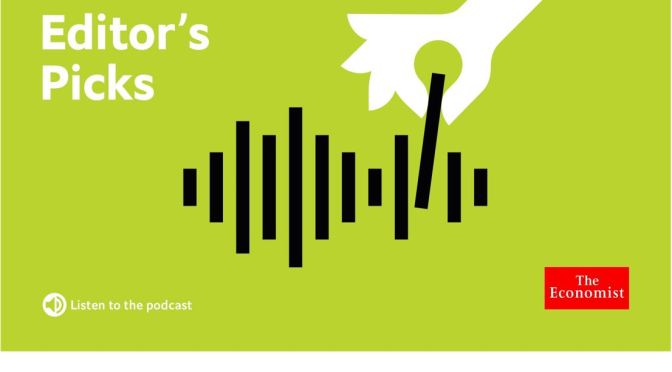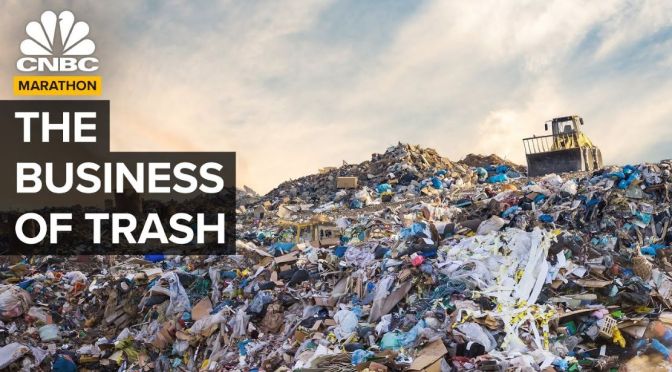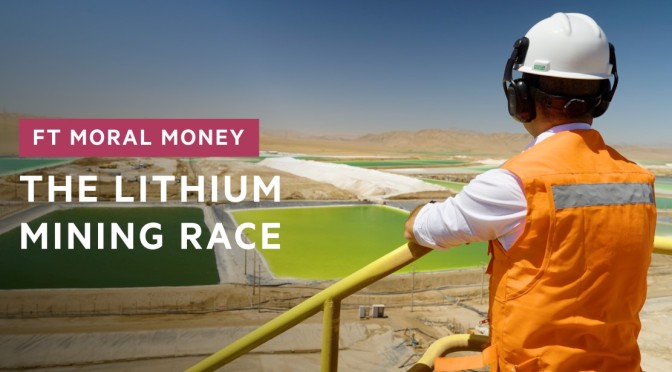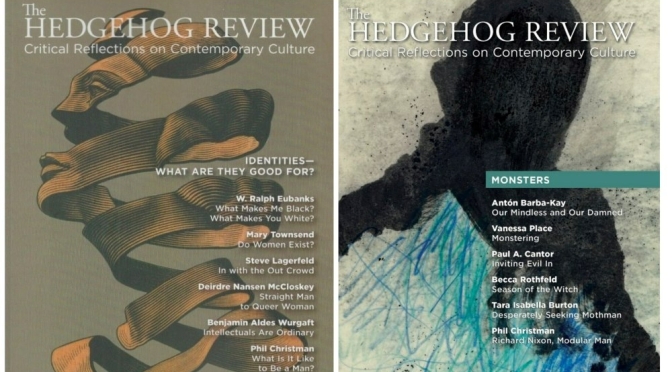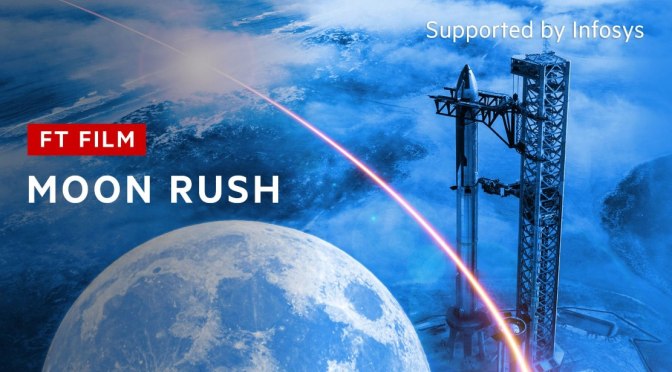‘Editor’s Picks’ Podcast (March 25, 2024): A selection of three essential articles read aloud from the latest issue of The Economist. This week, as the death toll climbs in Israel’s war on Gaza, we argue that the country looks deeply vulnerable. Plus, we consider Britain as an unexpected beacon of immigration. And finally, as Elon Musk’s Starship reaches space, we examine SpaceX’s approach to rocket development.
Tag Archives: Economics
Analysis: The Business Of Waste Management (CNBC)
CNBC (January 8, 2024) – CNBC Marathon explores the economics of waste management and how the United States is solving its trash problem. In 2019, the North American waste management market reached $208 billion.
Chapters: 00:00 Introduction 00:48 How Trash Makes Money In The U.S. (Published July 2021) 15:59 How Amazon, American Airlines And Subaru Burn Waste To Make Energy (Published May 2022) 32:24 How To Clean Up The World’s Most Polluted Rivers (Published August 2022) 46:16 Where Do EV Batteries Go When They Die? (Published March 2023)
Thanks to advancements in modern chemistry and support from municipal governments, landfills have seen astonishing financial success in recent years. Burning waste to make energy is a $10 billion industry in the U.S., and the fastest growing part of the business is waste from big companies like Amazon, Subaru, Quest Diagnostics and American Airlines.
They’re part of a growing corporate movement toward “zero landfill” as pressure mounts to reach sustainability requirements. It’s estimated that every year, millions of tons of plastic enter the ocean through rivers, and as global waste generation increases, the problem is poised to worsen.
But a host of companies from Baltimore, Maryland to Bengaluru, India are working on the issue, developing novel methods to capture trash from rivers before it reaches the ocean. Dozens of electric vehicles are scheduled to debut in the next few years and over 300 million electric vehicles are expected to be on the world’s roads by 2030.
The lifetime for an EV battery is estimated to be 12 to 15 years in moderate climates, but that doesn’t mean the batteries end up in landfills when they die.
Previews: Best Books On Foreign Affairs For 2024

Foreign Policy Magazine (December 31, 2023): The Best of Books 2024 – Here are 30 major nonfiction titles coming out this year on Foreign Policy’s radar, from economic manifestos to histories of forgotten eras to new assessments of great-power competition in the 21st century. New titles include:
The Everything War: Amazon’s Ruthless Quest to Own the World and Remake Corporate Power

by Dana Mattioli (April 23, 2024)
From veteran Amazon reporter for The Wall Street Journal, The Everything War is the first untold, devastating exposé of Amazon’s endless strategic greed, from destroying Main Street to remaking corporate power, in pursuit of total domination, by any means necessary.
In 2017, Lina Khan published a paper that accused Amazon of being a monopoly, having grown so large, and embedded in so many industries, it was akin to a modern-day Standard Oil. Unlike Rockefeller’s empire, however, Bezos’s company had grown voraciously without much scrutiny.
Foreign Agents: How American Lobbyists and Lawmakers Threaten Democracy Around the World
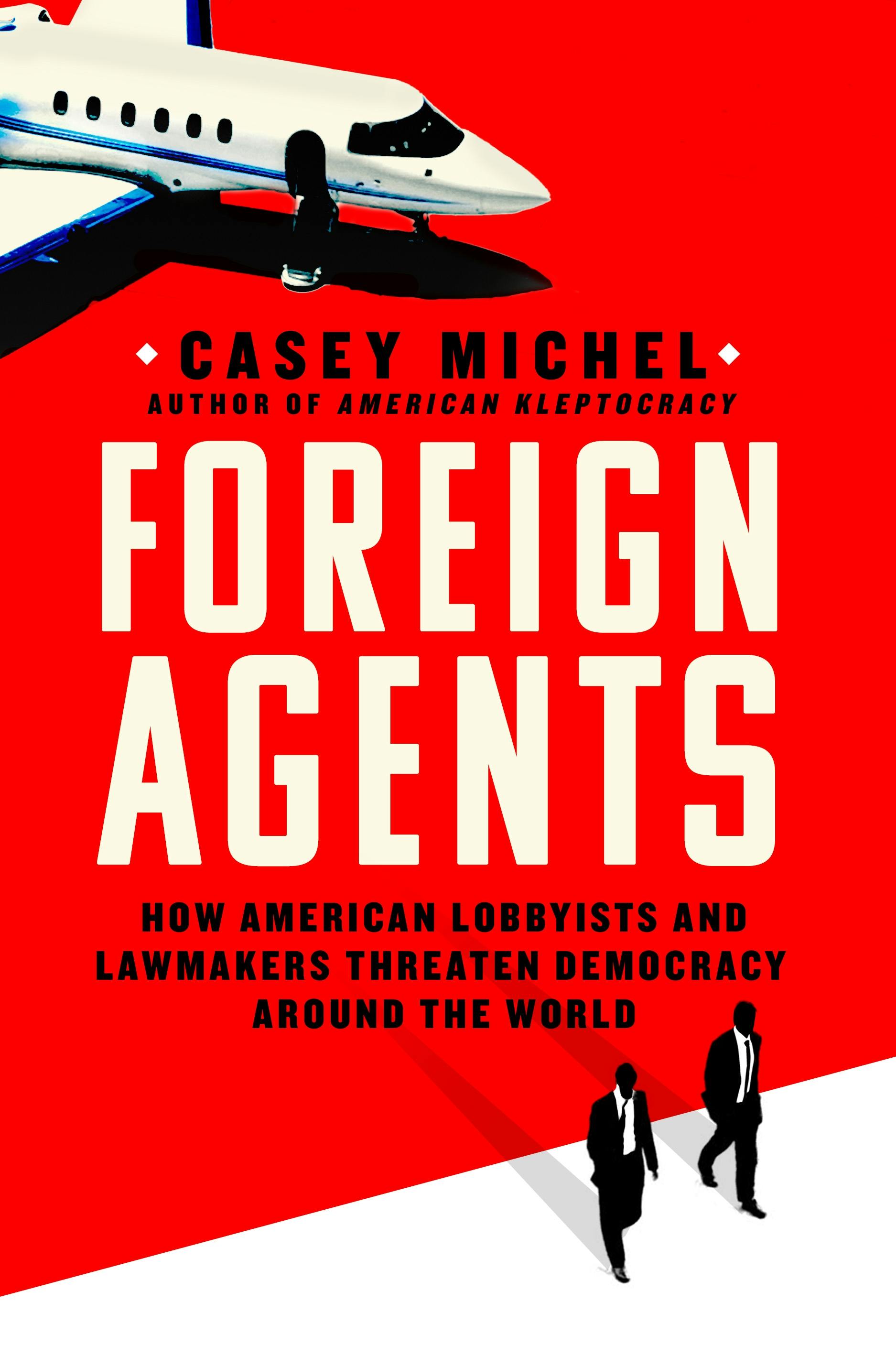
By Casey Michel (August 2024)
A stunning investigation and indictment of the elements in United States’ foreign lobbying industry and the threat they pose to democracy.
For years, one group of Americans has worked as foot-soldiers for the most authoritarian regimes around the planet. In the process, they’ve not only entrenched dictatorships and spread kleptocratic networks, but they’ve secretly guided U.S. policy without the rest of America even being aware. And now, journalist Casey Michel contends some of them have begun turning their sights on American democracy itself.
New Cold Wars : China’s Rise, Russia’s Invasion, and America’s Struggle to Defend the West
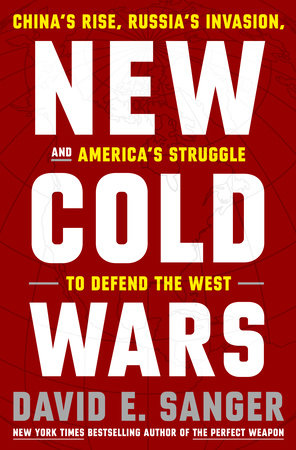
By David E. Sanger (April 2024)
Three decades after the end of the Cold War, the United States finds itself in a volatile rivalry against the other two great nuclear powers–Xi Jinping’s China and Vladimir Putin’s Russia–in a world far more complex and dangerous than that of a half century ago
.New Cold Wars–the latest from Pulitzer Prize-winning journalist and bestselling author of The Perfect Weapon, David E. Sanger–is a fast-paced account of America’s plunge into simultaneous confrontations against two very different adversaries. For years, the United States was confident that the newly-democratic Russia and increasingly wealthy China could be lured into a Western-led order that promised prosperity and relative peace–so long as they agreed to Washington’s terms. By the time America emerged from the age of terrorism, it was clear that this had been a fantasy.
Preview: Foreign Policy Magazine – Winter 2024
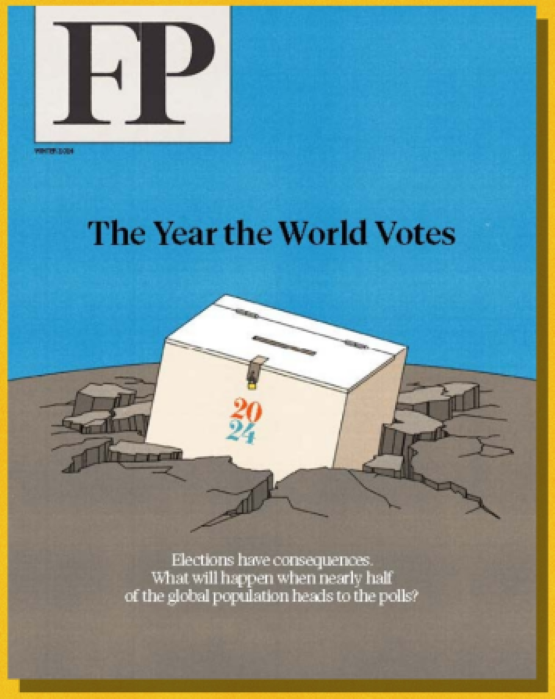
Foreign Policy Magazine – December 28, 2023: The new issue features ‘The Year The World Votes’ – Elections have consequences. What will happen when nearly half of the global population heads to the polls?
The Promise and Peril of Geopolitics
The world’s most dismal science could make Eurasia safe for illiberalism and predation—or protect it from those forces.
By Hal Brands, a professor of global affairs at the Johns Hopkins School of Advanced International Studies.

Alexander Dugin is a bit of a madman. The Russian intellectual made headlines in the West in 2022, when his daughter was killed, apparently by Ukrainian operatives, in a Moscow car bombing likely meant for Dugin himself. Dugin would have been targeted because of his unapologetic, yearslong advocacy for a genocidal war of conquest in Ukraine. “Kill! Kill! Kill!” he screeched after Russian President Vladimir Putin’s first invasion of that country in 2014, adding: “This is my opinion as a professor.” Even at his daughter’s funeral, Dugin stayed on message. Among her first words as an infant, he claimed, were “our empire.”
Clean Energy: The Global Race For Lithium Batteries
Financial Times (November 19, 2023) – Lithium is the ‘new oil’ of the clean energy era, crucial to the production of batteries for electric vehicles. The FT investigates this booming industry – and the controversies surrounding it – on a journey from Chile to Norway and the UK.
Video timeline: 00:00 Lithium and the energy transition 01:13 Global lithium reserves 01:33 The process 03:03 The communities 04:05 Water reserves 05:29 The investors 07:40 Lithium supply and China 08:41 The policymakers 09:35 Cornish mining revival 12:16 The markets 15:28 Chile’s lithium policy 18:02 Direct lithium extraction 19:54 The indigenous perspective 22:58 Recycling batteries 25:30 The future
#lithium #lithiumbattery #energy #electricvehicle #zerocarbon #emission
Culture: The Hedgehog Review – Fall 2023


THE HEDGEHOG REVIEW (FALL 2023): MARKETS AND THE GOOD – Thinking beyond the tyranny of economics; The Myth of the Friedman Doctrine; Hamilton’s System; How We Obscure the Common Plight of Workers; Profit, Power, and Purpose and more…
Introduction: Markets and the Good

Thinking beyond the tyranny of economics.
By Jay Tolson, editor of The Hedgehog Review
Only three decades ago, amid what was hailed as a new “Springtime of Nations,” post–Cold War exuberance fueled widespread confidence in the triumphant spread of liberal democracy and free-market capitalism to all parts of the globe, including those few remaining redoubts of “truly existing socialism,” with their fusty politburos and dysfunctional command economies. The brutal 1989 Tiananmen Square crackdown notwithstanding, even the People’s Republic of China was thought to be on the road to democracy thanks to its earlier adoption of a hybrid form of capitalism with “Chinese characteristics.” Though not alone in predicting that the opening up of China’s economy would lead to the liberalization of its politics and society, the editorial pages of the Wall Street Journal were among the louder cheerleaders for that optimistic line of economic determinism.
The Myth of the Friedman Doctrine
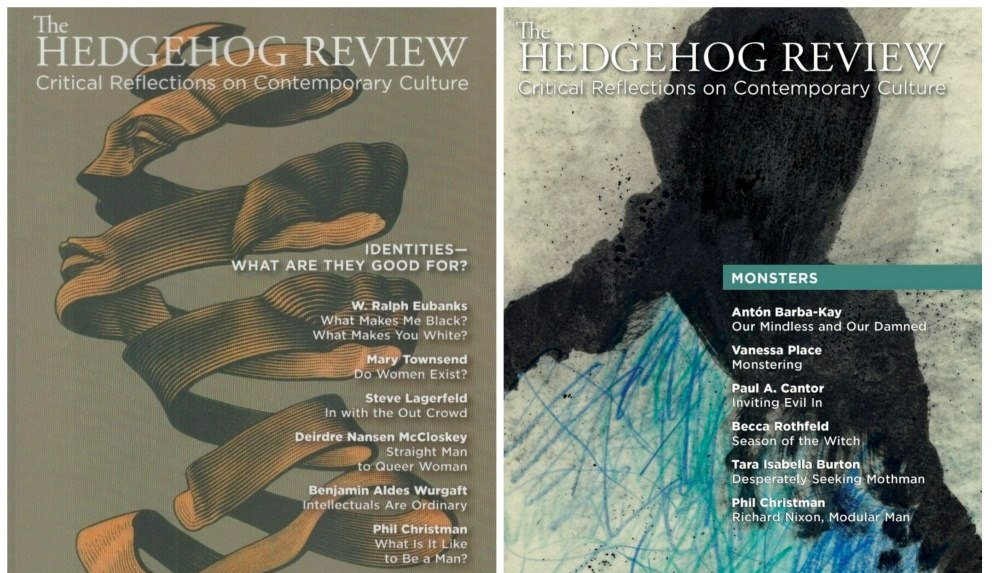
And the stubborn persistence of a powerful idea.
By Kyle Edward Williams, senior editor of The Hedgehog Review and the author of a forthcoming book on the history of American business, Taming the Octopus: The Long Battle for the Soul of the Corporation.
Americans were once deeply worried about the danger posed by powerful corporations. They may be useful, wrote James Madison to a friend in 1827, “but they are at best a necessary evil only.”1 This was an old republican intuition: Concentrated power in whatever form threatened the body politic. In recent years, however, business leaders have come to believe that what Madison considered a “necessary evil” is actually the last great institution capable of making the world a better place. For Silicon Valley entrepreneurs no less than Fortune 500 CEOs, the bottom line is out, and amelioration is in. Call it conscious capitalism. Or corporate social responsibility or environmental, social, and corporate governance (ESG) investing. Many consumers, regulators, and activists expect big-business executives to act like responsible citizens and steer their firms accordingly—maybe more now than ever before. Even 92 percent of executives in a 2022 survey agreed that corporate leaders should take a stand on social issues.2
Profit, Power, and Purpose
The greatest challenge presented by modern corporations, small as well as large, involves purpose.
The New Prince
Deneen’s politics of resentment primarily seeks to seize power from political enemies.
Opinion: Only America Can Save Israel, Elections In Poland, Surge In Bedbugs
‘Editor’s Picks’ Podcast (October 23, 2023) – A selection of three essential articles read aloud from the latest issue of The Economist. This week, why only America can save Israel and Gaza from a greater catastrophe. Also, the recent election in Poland offers a lesson in how to push back on populism (10:30) and the resurgence of bedbugs, beyond the hype (16:00).
Moon Missions: Launch Of The New ‘Lunar Economy’
Financial Times (October 18, 2023) – The rush back to the Moon has begun. The US and China are planning permanently crewed bases on the lunar surface. Billions of dollars in contracts are up for grabs as companies are launching ambitious new support projects, from growing food in space to a new lunar internet.
The FT’s Peggy Hollinger asks if the next great leap forward in space is a lunar economy?
Opinion: Israel’s Agony & Retribution, Green Policy Recoil, 2-Day Workweeks
‘Editor’s Picks’ Podcast (October 16, 2023) – A selection of three articles read aloud from the latest issue of The Economist. This week, will Israel’s agony and retribution end in chaos or stability? Also, the backlash against green policies (09:58) and a disastrous workplace experiment (16:15).
Opinion: Free Markets Are Fading, Democracy Dims In Africa, Bitcoin Origins
‘Editor’s Picks’ Podcast (October 9, 2023) – A selection of three essential articles read aloud from the latest issue of The Economist. This week, are free markets history? Also, why Africans are losing faith in democracy (10:25) and we investigate whether bitcoin originally leaked from an American spy lab? (17:25)

